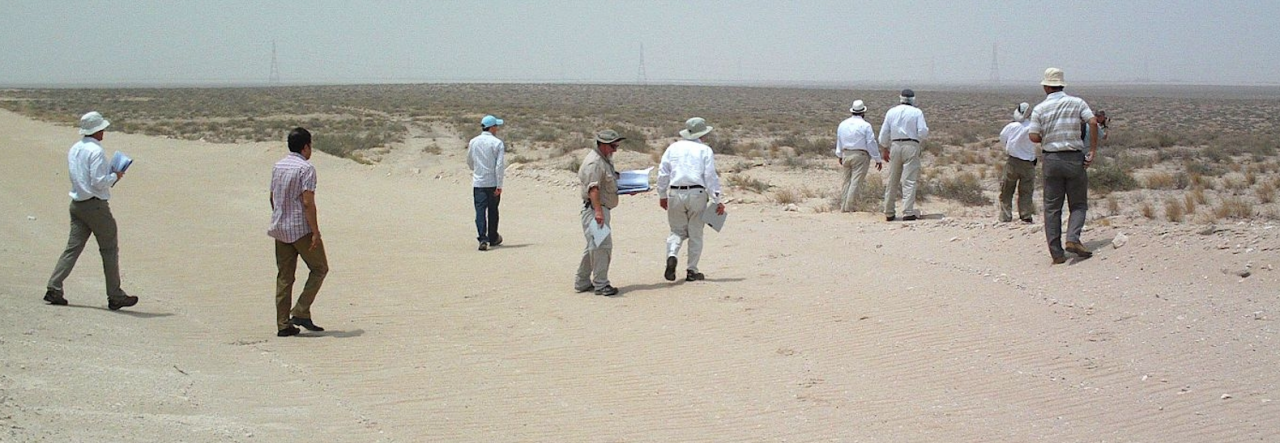My Translation and Analysis.

A reader sent me a very interesting article in Lebanon’s Al-Saffir newspaper.
The article, which I translated below, describes the Court-room defense of two young Lebanese men, who made an initial decision to attempt to go to Syria to join the Islamic State. However, they claim they realized immediately this was a mistake and came home before engaging in any violence.
What they are saying should be viewed with some skepticism– their attempt to play down the extent of their attraction to ISIS is likely an attempt to get a lesser sentence. But still, it is worth the read and there are lots interesting nuggets of information.
The Translation & Commentary at the End:
Rarely does a day pass that those who have become convinced of the ideas of terrorist groups in Syria and then go to join up, are called to account before the Military Tribunal
Yesterday, the Tribunal heard from two of these – who explained their motivations. Each has their specific motivations for what causes them to leave their homes/ families to travel to “the land of Jihad. “
The first, Guy A. 21 years old. Left his home to go to the port of Tripoli, without even telling his parents about his travels to Turkey, and then onward to Raqqa.
Guy A, who was born in a poor rural village in the Lebanese countryside, never sought out anyone to tell him about “the State.”
He first came in contact with the group, when he received a message via WhatsApp that was sent to the wrong address. It was from someone named Abu Fulan, asking for someone else named Abu ABC..
Despite the wrong number, Guy A stayed in communication with the guy who called him, who convinced him to travel to Syria to join the group, because “life is better with Daesh.”
Guy A wanted to join the fight. He woke up one morning, took camo pants and military boots from a store owned by his father and uncle, and then headed towards the Port, with the intent of contacting Al-Iraqi upon arriving to Turkey, with the goal of making it to Syria.
However, at the port, the young man felt he made a bad decision. He decided to return to his house. He asked the border control officer to give him back his passport, which aroused suspicion. Guy A’s luggage were then opened, he was questioned, and finally his plans of travelling to Syria were uncovered.
Yesterday, Guy A addressed the Military Tribunal, responding to questions, and expressed his regret: “I swear to God I don’t love Daesh.” He just wanted to put it all behind him and go back to his studies.
However, the story of the second person, Guy B is different than Guy A.
A native of Tripoli, Guy B was working in a café. He received a phone call from his friend, Hashem Al-Haj, aka “Abu Mujahidd” who was working carrying a trolley in the streets selling cake. He implored his friend to join Daesh, and that he would really improve his economic circumstances which weren’t great – and improve his ability to take care of his wife and two sons by becoming “super rich”.
Guy B, totally naively, believed this guy’s promise that Daesh would pay a salary equivalent to that of a general in the American Army, or $6,000/month.
Guy B – heard this and agreed, before his friend was killed during a battle. Guy B then made his way into Syria via a Turkish driver who happened to speak Arabic.
At the first camp, there were hundreds of people, of various nationalities. On Day 2, Guy B was moved to a different camp in Jarablus, affiated with Daesh, led by the commander Abu so and so.
Immediately after morning prayers, Guy B had to join with a group to receive Shariah lessons from a Saudi member of Daesh.
Participating in the actual fighting was delayed and the group had to go through military training, because of air attacks by the Syrian Army against the terrorist positions.
When Guy B heard this, he was terrified and decided to get out while he still could, without getting the money he was promised. He told Abu X about his desire for this, but he advised him to not think about the issue.
But getting into Daesh locations and getting out are different things. They grabbed him and moved him by car to a different location. There, he was imprisoned for 15 days and interrogated about his desire to return to his country. He was then released and allowed to return to Turkey to work there in order to raise the money to pay for a plane ticket back to Lebanon.
He expressed his regret to the court: “They tricked me….It wasn’t for me. I don’t want to kill and slaughter.”
After the Defense finished, the Military judge sentenced Guy B to hard labor for two years and the loss of his civil privileges (no voting, no working in Government jobs). ; and Guy A to one year.
Some Commentary:
(1) Are these articles common?
For those who don’t read Arabic — and might wonder – are there lots of articles published like this that provide good insights into the local appeal of ISIS? Not that I am aware of. Therefore this article is more interesting because of its uniqueness.
(2) “I did it for the cash” defense…
Room for skepticism? It is hard to believe that anyone in Lebanon – where average salaries are about $1,300/month – could really believe they’d get paid $6k to join ISIS. My hunch is that maybe money was a factor but there had to have been at least some meaningful sympathy with the group’s message too. But that probably isn’t something you would tell a judge in this case if one is looking to convince a judge you deserve a lesser punishment.
(3) “I didn’t contact them – they contacted me accidentally”
Again, a smart thing to tell a judge yet seems there has to be slightly more to the story.
Although there could be something here. When I lived in Lebanon I bought a standard burner phone, brand-new at the local store. I would occasionally get Spam-type Text messages from religious charity type organizations raising money related to the Syrian Civil War. This was sometimes a bit creepy. How did they get my number? Clearly, someone somewhere has a mass phone number list.
So it is plausible it was a truly random “wrong number” from a guy that just happened to be a recruiter. Probably also true though that somewhere along the line he expressed an indicator of support for the cause, that made have something to do with getting the “Wrong number” text.
(4) Deep religious beliefs not necessarily the primary motivator
While both were clearly Sunni, their decision to join –doesn’t seem to be about some kind of deep religious motivation, although the article says nothing about this. I am also skeptical it was really only about the money for Guy B. It seems more about the appeal of being apart of some greater Cause. Something different and exciting than either – both with mundane, very low-level jobs could ever find otherwise.
In any case, it seems the judge made a reasonable judgement (based solely on what can be ascertained from the article) that these two guys probably aren’t hard-core true believers in the ideology and sentenced them to a pretty light sentence. Even more than that they are both, but especially the Second guy, extremly lucky to have even made it back alive from a dangerous situation.






